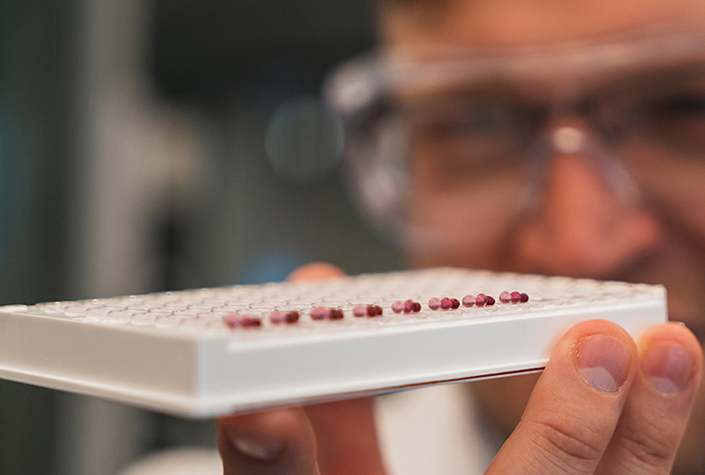New blood test will help to diagnose preeclampsia earlier in pregnancy

Researchers at Texas A&M University are developing novel tests to diagnose preeclampsia earlier in a pregnancy, even before symptoms occur, allowing hospitals to better treat pregnant patients.
Preeclampsia — a pregnancy complication that can lead to organ damage, especially in the liver and kidneys —is one of the leading causes of maternal and baby deaths during pregnancy. Current diagnosis typically occurs very late in the pregnancy (around the 20th week) by documenting common symptoms such as high blood pressure, protein in the urine and swelling in the legs. However, an added complication is that these symptoms resemble many common side effects associated with a healthy pregnancy and sometimes there may also be no symptoms even if preeclampsia exists.
“What we’re looking for is more specific biomarkers that could be monitored and addressed,” said Samuel Mabbott, assistant professor in the Department of Biomedical Engineering.
The research is being developed in collaboration with Gerard Coté, professor in the Department of Biomedical Engineering and director of the Texas A&M Engineering Experiment Station Center for Remote Health Technologies and Systems, and Mahua Choudhury, associate professor in the Texas A&M College of Pharmacy.
“To better diagnose the condition, we are developing an assay on paper that, using a drop of blood and a small hand-held meter, can measure a biomarker in the blood much earlier in the pregnancy. Further, by using paper-based systems the technology is better suited for low resource settings, where preeclampsia is even more prevalent,” Coté said.

